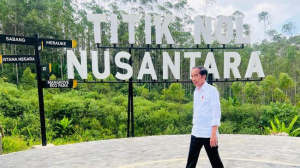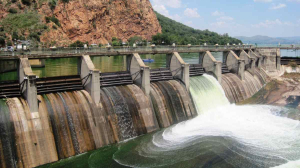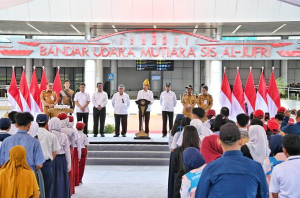Construction of Jenelata Dam to bolster flood control in Makassar begins
The Ministry of Public Works and Housing (PUPR) has commenced the construction of the Rp4.15 trillion (Rp256 million) Jenelata Dam in Gowa, South Sulawesi, aimed at optimizing flood control in Makassar.
Minister of PUPR, Basuki Hadimuljono, emphasized the importance of increasing water storage facilities across Indonesia to combat climate change.
"To face the threats of climate change, the Indonesian government must increase water storage facilities, including reservoirs and dams," Basuki said in Jakarta on Thursday, July 18, 2024.
The primary objective of the Jenelata Dam is to improve flood control in Makassar, which has heavily relied on the Bili-Bili Dam with a capacity of 375 million cubic meters since its completion in 1997.
Basuki highlighted that the Bili-Bili Dam is no longer sufficient to manage floodwaters, especially during heavy rainfall, as evidenced by the floods in Makassar in 2019.
The new dam will help contain the overflow of the Jenelata River, which flows into the Jeneberang River, thereby providing additional support to the Bili-Bili Dam.
Basuki expressed hope that the Jenelata Dam would significantly reduce flooding in Makassar and assist during droughts by providing a water reservoir during El Niño events.
In addition to flood control, the Jenelata Dam will serve as an irrigation source for 26,773 hectares of farmland, including the Bili-Bili irrigation area (2,400 ha), the Bissua irrigation area (13,916 ha), and the Kampili irrigation area (10,457 ha).
The dam will also supply raw water at a capacity of 6.05 cubic meters per second to support various needs, including the Bili-Bili and Jenelata areas, sugar factories, and sugarcane fields in Takalar, as well as the Sungguminasa Intake.
The Jenelata Dam, with a storage capacity of 223.6 million cubic meters, also holds potential for hydroelectric power generation of up to 7 MW, and will contribute to water tourism and culinary activities.
The construction of the Jenelata Dam is being carried out by PT Adhi Karya in collaboration with PT Wijaya Karya, and the KSO CAMC Engineering Co., Ltd from China.
The project has a total contract value of Rp4.1 trillion, funded through a loan from the Chinese government and the Indonesian state budget (APBN). Construction began in October 2023 and is expected to be completed by 2028. Current progress includes excavation of the main dam and spillway areas.
Tag
Already have an account? Sign In
-
Start reading
Freemium
-
Monthly Subscription
30% OFF$26.03
$37.19/MonthCancel anytime
This offer is open to all new subscribers!
Subscribe now -
Yearly Subscription
33% OFF$228.13
$340.5/YearCancel anytime
This offer is open to all new subscribers!
Subscribe now





